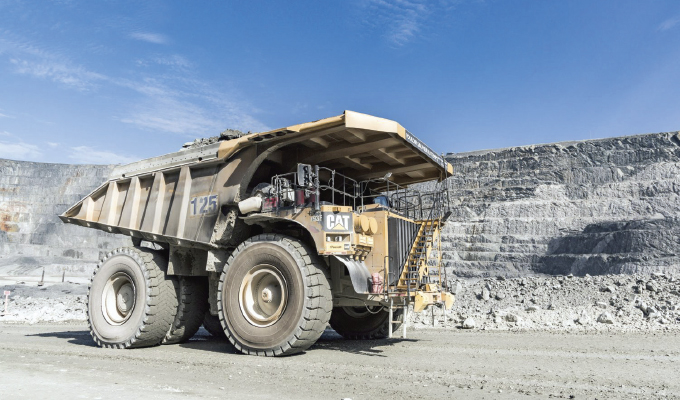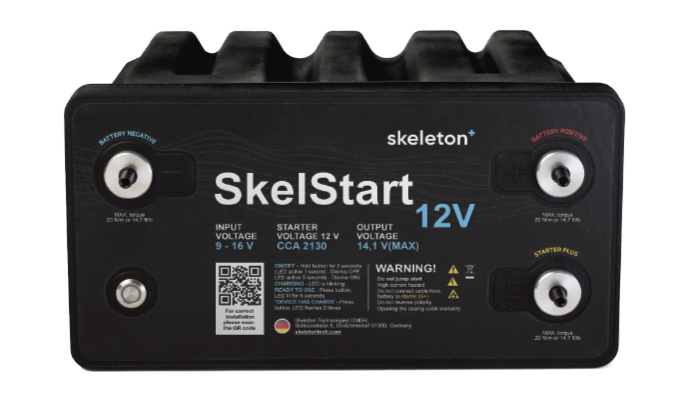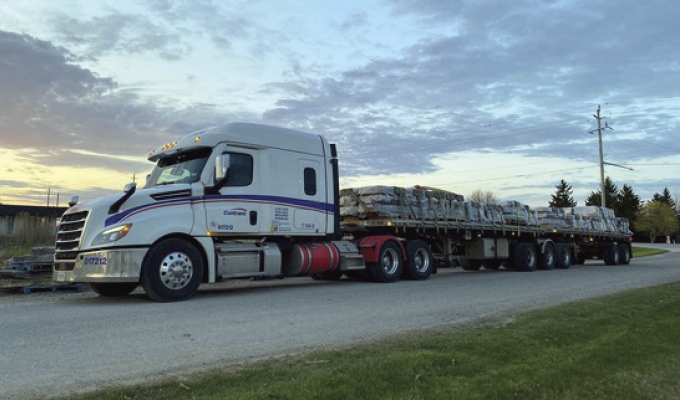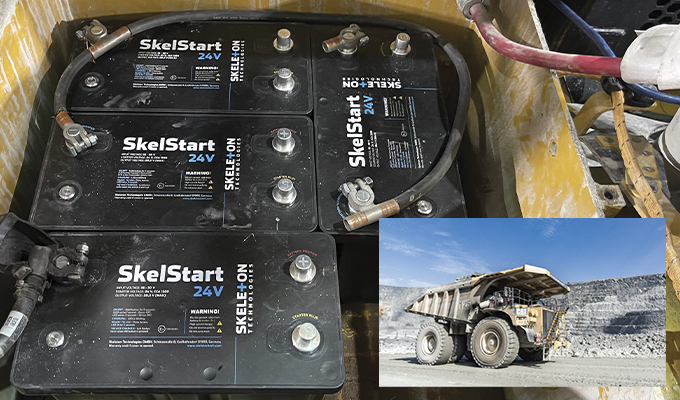It can get pretty frigid in the wilds of Western Canada, the Northwest Territories, and the Yukon during the winter months. However, for the folks at Cascade Carriers out of Sherwood Park, Alberta, cold weather is just something they have learned to contend with over almost 105 years doing business.
The fleet of approximately 100 power units serves remote oil and gas mining installations year-round. Something they’ve learned over time: Lead acid batteries don’t like the cold. So, when temperatures drop to -22 to -40 degrees Fahrenheit, battery issues and failures rise.
“If a unit is not plugged in and kept warm, then you’ve got to crank and crank and crank it to try and get it to start, and you’ll often draw down your batteries doing so,” says Steve Smith, Cascade Carriers director of maintenance. “When it comes to winter, lead acid batteries become the weakest link in the chain.”
According to Smith, it depends where the battery failure occurs that dictates how serious and costly the problem can be. Smith estimated that the total cost of a battery failure in the field can be in the thousands of dollars, and that’s only if you can get a service truck to the location where the batteries failed.

REGIONAL ISSUE
Cascade’s battery woes are not uncommon among Canadian fleet operators. The maintenance officials at Ontario-based Contrans and Quebec-based Canadian Malartic Partnership have similar stories.
“We had several issues in our fleet,” says Doug Martin, Contrans director of maintenance. “One was the continuous dead battery in the morning scenario, and the other was the dead battery in the field scenario. We were spending a great deal of time and money starting trucks with dead batteries.”
Martin observed that the increased use of APUs and the associated rise in vehicle hotel loads driving on-board electronics have increased over the last 10 years, taking a toll on vehicle batteries.
Canadian Malartic Partnership manages and operates Canadian Malartic Mine, one of Canada’s largest open-pit gold mines. In February 2021, the Partnership also officially announced the start of construction on its Odyssey Mine, which will become one of the largest underground gold mines in the country.
Nicolas Legare, Canadian Malartic Partnership application specialists, says, “If our big dump trucks aren’t running, our entire mining operation is negatively affected. The cold weather is not kind to lead acid batteries … So we’ve spent a lot of time and money charging, maintaining, and replacing our vehicle’s batteries.
SUPERPOWER
Fortunately for commercial fleets that experience cold winter temperatures, a solution has recently emerged. The solution also stores energy and looks very much like the batteries fleets already use, and it even matches their dimensional form—but that’s where the similarities end.
The SkelStart Engine Start Module is a supercapacitor designed to start any engine, anywhere, and under almost any circumstances. One SkelStart will easily crank a 27-L engine, and four SkelStarts can crank an 85-L engine. Distributed exclusively in North America by Ontario-based C8 Energy, the SkelStart supercapacitor technology delivers 2,130 cold-cranking amps (CCA) for up to one million cycles. It also delivers that same starting power whether the ambient temperature is as low as -40 degrees or as high as 149 degrees F.

MAKING THE SWITCH
Contrans has used the SkelStart Engine Start Module since January of 2022. He ordered it directly from Freightliner and Navistar when making his 2022 vehicle purchases in 2021. Those vehicles would otherwise have come with four dedicated starter batteries and four devoted to handling the vehicle’s APUs and hotel loads. Just one SkelStart replaced the four starter batteries on the new 2022 vehicles, and Contrans now has about 100 SkelStarts in service.
Martin says replacing four starter batteries with one SkelStart saved 700 lbs per vehicle. “We’re an extremely weight-sensitive fleet, and that weight savings translates into greater cargo capacity and thus higher revenue per load,” Martin says.
Further, Martin says converting to supercapacitors makes sense for a fleet for four primary reasons. “It cuts down on road service calls, it cuts down on cold start problems, and it improves driver safety and comfort,” Martin states. “And with a lifespan of up to one million cycles, they can theoretically outlast their vehicles.”
Cascade’s Smith agrees. He is currently field testing the SkelStart in his fleet.
“Though we’re still in the trial phase, there have been no issues so far,” Smith says. “But if it works out, we will put the SkelStart in our units that go on- and off-highway in certain remote locations where starting power reliability is critical to asset protection and driver safety.”
CAPABLE & CONSISTENT
The bigger the engine, the more cranking power needed to get it started—particularly in the dead of winter. Canadian Malartic’s big dumps each use four large, 12-Volt, Group 8D batteries paired in series to produce 24 Volts. Fortunately, for their application, the SkelStart Engine Start Module comes in 12-Volt and 24-Volt models.
“We replaced two of the four Group 8D batteries with the SkelStart in order to handle the dump truck’s starting capacity,” Legare says. “We left two of the 8Ds to enable the ECU, ignition switch, lighting, and other auxiliary vehicle functions.”
Legare says that the SkelStart cranks the big engines with no problem. He also observes that the cranking power does not diminish with time or with temperature drops like it does with a lead acid battery. “Its powerful cranking capability and consistency is one of the things we like most about the SkelStart system,” he says.

GREEN ENERGY STORAGE
Due in part to their exceptional reliability, supercapacitors have been used in heavy transportation for many years, particularly in Europe. However, with increasingly stringent regulations surrounding fuel efficiency, no idling laws, and emissions control globally, their use is growing exponentially.
“The SkelStart technology represents the cutting edge of supercapacitor technology,” says Jean Labrie, C8 Energy CEO. “It has 60 times the power of lead acid batteries, it’s reliable down to -40 degrees, it reduces battery-related downtime, and it lasts for up to a million cycles.”
In fact, the scientists that developed the SkelStart recently won an award given by the European Patent Office (EPO) recognizing their work on developing and optimizing the properties of the patented, next generation curved graphene material.
“The new patented, curved graphene material development is responsible for delivering an unprecedented 72% greater power and energy density than any other supercapacitor on the market,” Labrie says.
Further, unlike lead acid batteries, the cells contain no hazardous materials, so they are completely recyclable, just like a computer monitor and other electronics.
The SkelStart Engine Start Module is available to North American fleets now and can be ordered as a factory option on select models from Volvo, Navistar and Daimler, and Peterbilt vehicles.
“Until now, batteries have been the leading cause of engine starting problems because of their short lifespan and their vulnerability to extreme weather conditions,” Labrie says. “Because it is the most powerful and reliable module for engine starting applications in the world, the SkelStart is about to solve that problem for good.”
FOR MORE INFORMATION
Find out more about the SkelStart Engine Start Module, visit www.c8energy.com.




